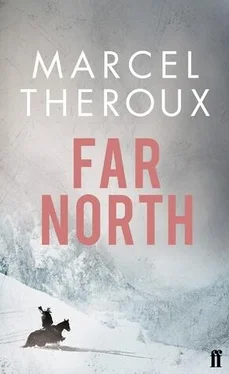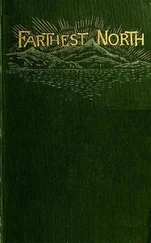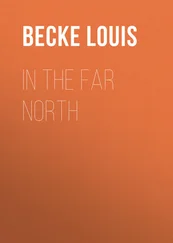Their eyes were all big and fixed me on now, and it felt like I was telling the story to children. The one in particular who’d asked me the question had a pair of blue eyes that were as round and trusting as a couple of open mouths. His face spurred me to pad the story out with details because I liked the way he was drinking it all in.
‘Well,’ I said, ‘you can imagine, there’s nothing ornerier than a skinny, wakeful bear in February, with its fur hanging all baggy from starvation. What should this bear see but a juicy hunter making his way through the forest. Now, the bear’s drooling with hunger at the idea of eating this man and it leaps out and takes a big bite of him.
‘The hunter and the bear struggle for a while, but the bear’s more hungry, more strong, and more desperate. Then just as those big jaws are about to crush the hunter’s head like a pine cone, he manages somehow to wriggle free and sprint away to freedom.
‘Now you can picture for yourselves how battered and raggedy he is when he shows up at his friend’s cabin. He’s more or less alive, but the bear has taken a big chunk of his arm, and scratched up his face with its claws. Add to which, he’s dizzy with blood loss. So he’s banging on the door, in need of water and bandages to stanch the bleeding.
‘Now his friend opens up, takes one look at him, and says, in his gravelly deadpan way: “I see you already met Flossie.”’
Maybe I had just lost my knack of telling a story. I certainly hadn’t had the opportunity to visit with anyone for any length of time lately. There was a silence after I stopped speaking that reminded me of the clang when the two of them put down the saw on the tree trunk.
And then the man with the gun said: ‘It’s bad for bears round here. Seems like the fewer of us there is, the more there is of them.’
And the man with the round blue eyes said nothing at all, but looked a little disappointed, as if he’d been expecting some other kind of story.
I explained to them that I’d told them this because they’d call the place New Judea.
They still looked at me puzzled.
‘I guess I’m saying,’ I said, ‘that when a thing is terrible and dangerous, a man needs to find a pretty name for it to let himself sleep a little easier at night.’
That didn’t make it any plainer for them and my spelling it out bled any drop of humour from the story altogether.
‘What do you call this place then?’ said the round-eyed man.
I couldn’t answer him. In my mind, I didn’t gave it a name at all. I wasn’t like the Tungus, who had been there so long that all the places meant something to them. To me it was just the city, the land, the snow, the sky, the bears. If it was any place, to me it was the Far North.
My father had an expression for a thing that turned out bad. He’d say it had gone west. But going west always sounded pretty good to me. After all, westwards is the path of the sun. And through as much history as I know of, people have moved west to settle and find freedom. But our world had gone north, truly gone north, and just how far north, I was beginning to learn.
Our way turned off the road and onto a narrow track through the forest. We’d been going for about fifteen minutes. I said, ‘You gentlemen are awful choosy about the wood you cut.’
The man with the gun knew what I was getting at, so at least he wasn’t simple. ‘We don’t like to fell it too near the town. We live quiet and we don’t like to be bothered none.’
That made sense to me. I’d been lucky so far, but that road could bring you no end of trouble.
We picked our way a little further through the forest until finally we drew near to the place they called Horeb.
It wasn’t anything like I’d been expecting. They had put a lot of work into her, no doubt, but it wasn’t a settlement our parents would have thought too highly of.
The narrow path wound into a clearing about an acre square, and smack in the middle was a five-sided stockade with a gateway let in to it. It must have enclosed about a quarter of an acre of land. I guessed there were a number of buildings inside it, because there were separate plumes of smoke rising up.
The men asked me to wait and then disappeared inside with their logs.
They were a long time coming out, and I could see eyes peering at me through chinks in the palings, so that I began to wonder if some kind of ambush was being set for me. It must have been close to twenty minutes that passed before the front gate was raised up, and out came half a dozen men, led by one in a long black robe, and what was stranger, beside him a woman of about my own age, who laid a basket at my feet that had some grey salt in it, and the smallest loaf of bread I had ever seen.
It was a strange little welcoming party, and a couple of the faces in it were not exactly friendly. The man in black who led them stared at me with a holy look that made me want to giggle.
He embraced me, and I stiffened in spite of myself, because I didn’t like to be touched that way by a man, and I noticed that he had some kind of perfume on. ‘Welcome, brother,’said. ‘Our remnant. Remnant of a remnant.’
And before I could think of anything to reply to him, they were all on their knees and he was leading them in a prayer of thanksgiving. I stood there, feeling foolish, but knowing I’d feel more foolish if I joined them, so I snatched off my hat as a mark of respect, and waited for them to finish. And now instead of just feeling foolish, I felt foolish and my ears were beginning to freeze.
When the prayer was over, they stood up again and there was a pause as if they were expecting something from me. It reminded me that for all the hardships I put up with in my life, awkward silences weren’t generally one of them. I looked at them all and recognized the faces of the three men I’d encountered in the forest, and they were all of them waiting for me to speak.
I cleared my throat and told them my name, and where I’d come from, and thanked them for their kindness. They still seemed to want more, so I added that, though I had never heard of a settlement called Horeb until just this day, they were a credit to their folk.
‘Amen,’ said the perfumed man in black, and he took my arm to lead me in, nodding at the woman to gather up the bread and salt.
‘Brother,’ he said, ‘we can stable your horses with ours. But, as a sign of peace, I ask you to surrender those guns you’re carrying while you’re our guest.’
He could see me hesitate. ‘I’ll vouch personally for them.’ What it was that made me trust him, I can’t say for sure, but there was something about him that reminded me of one of my uncles. He must have been around fifty. I could see that he wasn’t all seriousness, and I liked the way that he bossed them all without ever raising his voice.
I unbuckled the belt and handed it to him, and we went inside.
*
The settlement seemed bigger in than out. It had a number of dwellings in the yard, and smaller shacks built right against the wall. There must have been thirty to forty people there altogether, including children, at least one babe-in-arms, and several barely old enough to walk. It had been a long time since I’d seen a child — at least, a living one. Their eyes followed me as I followed my host across the yard to the largest of all the dwellings. They all looked well enough, if a little grubby and underfed.
We shucked off our footwear and our outdoor clothes in the porch and went into a long plain room that reminded me of the old meeting house at home, except it had a cross at one end, and some Mary and Child pictures, none of which they would have stood for where I came from.
Reverend Boathwaite, which is what I came to know him as, invited me to sit with my legs under a low round table that had a kettle of hot charcoals beneath it and a thick cotton cover, somewhat of an asiatic style. Six or seven of us as sat there, with our feet under the cloth, warm enough over that brazier. The Reverend locked my guns in a box that he put back under the altar, and then he joined us.
Читать дальше












